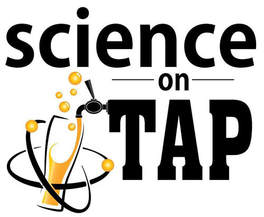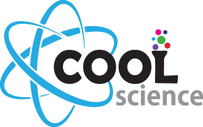
Science on Tap is live again at Jack Quinn's! Join Cool Science for Science on Tap every 2nd Monday of the month at Jack Quinn’s Irish Pub & Restaurant in downtown Colorado Springs.
Presenters begin at 6:30 pm and typically speak for 60-90 minutes including Q&A, with food and drink available beginning at 6:00 pm. A wide variety of fascinating topics are presented by local scientists for informal discussion, and the relaxed atmosphere encourages anyone and everyone to come explore the latest ideas in science and technology. From practical to theoretical, the presentations and group interactions provide a fun and interesting way to gain an understanding of the world around us.
Science on Tap is live again at Jack Quinn's! Join Cool Science for Science on Tap every 2nd Monday of the month at Jack Quinn’s Irish Pub & Restaurant in downtown Colorado Springs.
Presenters begin at 6:30 pm and typically speak for 60-90 minutes including Q&A, with food and drink available beginning at 6:00 pm. A wide variety of fascinating topics are presented by local scientists for informal discussion, and the relaxed atmosphere encourages anyone and everyone to come explore the latest ideas in science and technology. From practical to theoretical, the presentations and group interactions provide a fun and interesting way to gain an understanding of the world around us.
Next up: Monday, November 8, 2021 at 6:30 pm
Bigger bananas, fruit salad trees, and herbicide-resistant crops - a brief history of how humans have changed plants
Amy Klocko, Ph.D., University of Colorado Colorado Springs
Summary:
Plants are pretty amazing! Humans have made changes to plants over thousands of years of plant domestication and breeding. Domestic plants often are quite different from their wild relatives, such as the large seedless domestic banana as compared to the small seed-filled wild banana. We also make use of some of the amazing properties of plants, including their ability to regrow from cuttings, or to have pieces of two different plants grow together via grafting. One modern technology is our ability to specifically add DNA to plant genomes or to edit plant genomes, creating genetically engineered (GE) plants. This latest innovation comes with controversy! This talk will cover some of the various ways humans have changed plants, including genetic engineering, and some of the pros and cons associated with GE plants.
Plants are pretty amazing! Humans have made changes to plants over thousands of years of plant domestication and breeding. Domestic plants often are quite different from their wild relatives, such as the large seedless domestic banana as compared to the small seed-filled wild banana. We also make use of some of the amazing properties of plants, including their ability to regrow from cuttings, or to have pieces of two different plants grow together via grafting. One modern technology is our ability to specifically add DNA to plant genomes or to edit plant genomes, creating genetically engineered (GE) plants. This latest innovation comes with controversy! This talk will cover some of the various ways humans have changed plants, including genetic engineering, and some of the pros and cons associated with GE plants.
Dr. Amy Klocko is an assistant professor of plant genetics at UCCS. They have a PhD in Plant Genetics from Washington University in St. Louis where they worked on the model plant Arabidopsis thaliana, a relative of cabbage and mustard. Prior to coming to UCCS, they were a postdoctoral associate with Dr. Steven H. Strauss of Oregon State University and studied transgenic trees. This work involved being outside with the trees in all sorts of weather conditions (rain, snow, wind, heat) as well as being indoors in the research lab and greenhouse. At UCCS Amy teaches classes including Genetics, and Plant Physiology. Her research lab is investigating the functional overlap of floral development genes in domestic apple. Amy adores plants of all sorts and is dismayed when the deer keep eating the ones in their yard.









